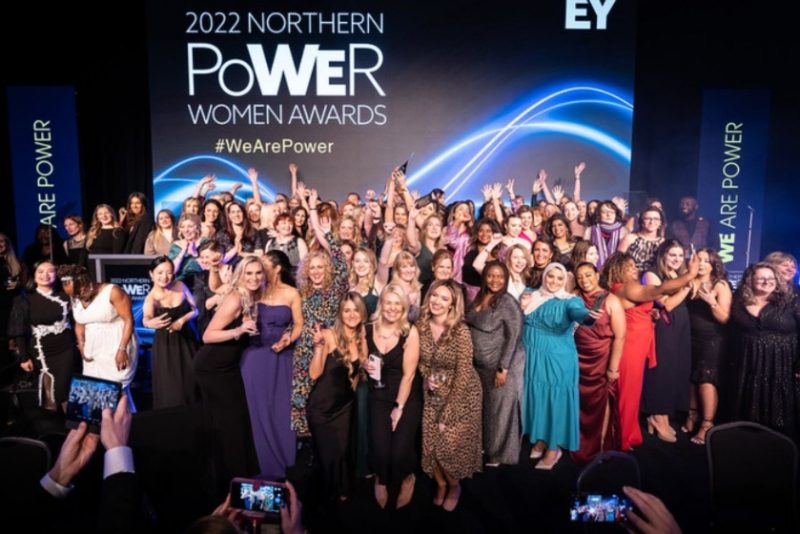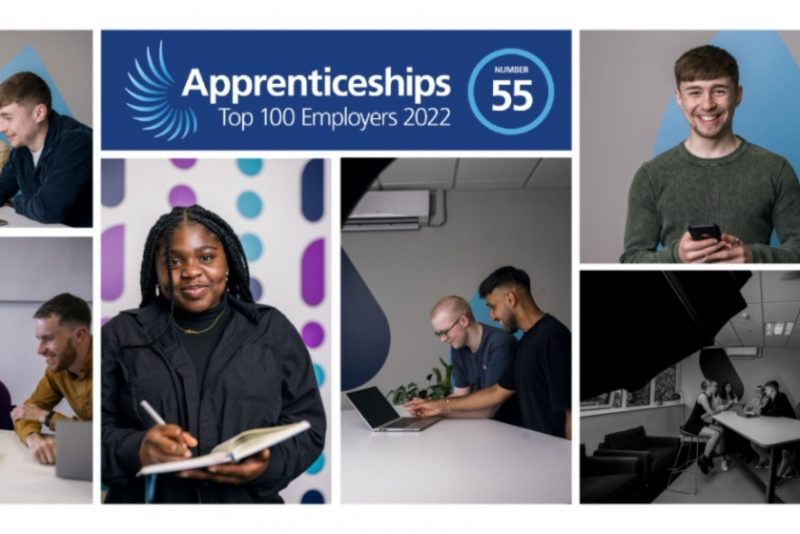Mentoring has been proven to empower personal development, increase confidence and help someone to achieve their career goals, all while introducing a new perspective on the world.
At ANS, we’ve got our own mentoring ‘triangle’ going on as Helen S, Communications Manager, Jess O, Technical Analyst Apprentice and Helen C, Development Delivery Manager are all either mentoring, being mentored or both!
Read on to find out how they got involved in mentoring at ANS, why it’s important to them and any advice they have for someone looking to be mentored.
Why did you want to be a mentee?
Helen S: I wanted a mentor to help me develop and progress further in my career. At ANS, we’ve got so many talented leaders with different levels of experience and different strengths and I wanted to broaden my understanding of what it means to be an effective manager.
Jess: I didn’t actually go looking for a mentor specifically but when the opportunity came up, I couldn’t say no. I get loads of support from the team who run my apprenticeship but I think it’s important to get help and guidance from anywhere that you can and from a range of different people.
Helen C: It’s all well and good being a mentor, but you’ve got to practice what you preach. When you look inwardly, you realise what you should be doing to better yourself too. I find my mentor is re-teaching me things that I had forgotten – it’s so important to do what’s right for you.
Why did you want to be a mentor?
Helen S: For me, it was mainly for two key reasons. I’m currently doing a management apprenticeship which has really taught me about the power of motivating people and using coaching unlock a person’s potential to maximise their own performance. If I can encourage someone to think in different ways, then I’ll have done something worthwhile.
Plus, being a mentor is also beneficial for my own development. As a manager with only 1 direct report, I’ve found that my management style is very much tailored to the individual I manage. So engaging in a mentoring programme is giving me an opportunity to work with someone who has different level of experience, a different background and a different skillset.
Helen C: I love helping other people to succeed in their roles and offering a different perspective. I like to focus my mentoring the person’s emotions rather than skills and knowledge. Mentoring doesn’t necessarily have to be work related, for me, soft skills and personal growth are just as important to help them become the person they want to be.
What’s the best part about being a mentor/mentee?
Helen S: My mentor encourages me to address problems in ways I’d never thought of. Helen suggested that I became a mentor myself as I wanted to expand my managing experience.
I think part of the reason I had never considered it was because I didn’t think I had enough experience or advice to offer (hello imposter syndrome!). But I think it’s a common misconception that you need 20 years’ experience under your belt to be an effective mentor. That’s simply not true. I’ve probably learnt a lot in my 6-year career that I don’t give myself enough credit for.
Jess: The best thing for me is getting to focus on my personal development, outside of what I do. That’s definitely the way we are going with our sessions. I can develop the skills I need for my job by speaking to my team leader and even my peers, but with mentoring, I can explore another side of me that I want to grow.
Helen C: For me, it’s understanding what makes people tick. We’re all so unique, everyone has different experiences and reactions to life and I love working together with people to help them be the best version of themselves.
What do you hope to achieve from it?
Helen S: As both a mentor and a mentee, I could list dozens of skills I’m taking away from the experience. It’s forcing me out of my comfort zone and in the process, I’m becoming more confident, a better communicator, more empowered to make decisions, I’m developing my leadership and management skills…the list goes on.
Jess: I’m actually currently setting up some goals with Helen at the moment. I’m working on looking at the bigger picture and then putting some short term and longer goals in place to help me achieve that. I’m really interested in moving into application and software development in the future so we are looking at ways I can connect with the right people at ANS to start me on that journey.
Helen C: Remembering to practice what I preach. When you’re a mentor, it’s easy to forget you’ve got your own personal development to work on as well as helping others. So as a mentee, I’m working on progression in my own space. And as a mentor, I want to help people understand there isn’t a right or wrong way, it’s your way that will benefit you and the business you work at.
What advice would you give to someone looking for a mentor or to be a mentor?
Helen S: Be clear on what you want to achieve – both in what you want to give and take from the experience. If you’re looking to be mentored, buddy up with someone who you don’t work with regularly and someone with a different set of skills. Find someone who will challenge you!
Jess: There’s plenty of people who just get on with it with their head down for 5 years. But I thrive off extra support and it’s paying off when I go looking for it! I would say approach someone who you already feel comfortable talking to, maybe your manager, and explain that you need more support, whether that be professional, emotional, you name it, be candid. It’s not too much to ask.
Helen C: You’re looking for someone to confide in and they need to be someone you can trust as all your conversations are confidential. That way, you can be honest with each other. We are learning all the time, especially when it’s from someone you trust, and even more so when you’re the one doing the teaching as a mentor. If you think you’re someone that knows everything – think again! The most successful people in the world never stop having a mentor.
How important is it to build diverse teams in tech?
Helen S: It’s so important. Research has shown that the most successful teams are made up of a diverse range of behaviours. We should focus on building a team bursting with diversity with creative people, analytical people, extroverts, and pragmatists and that way you generate ideas and solutions that may never otherwise have come to light.
Jess: Very! When I first started learning about tech, almost everyone was male, but I was different. In education, boys are often encouraged to study STEM subjects while girls are made to focus on arts and humanities. I didn’t want that to put me off my goals. It’s about time we put a stop to it.
Helen C: You will always mentor someone who is not in your team, not even necessarily the same business. Mentoring helps to build teams with a wide range of people because it helps the mentee to think differently and maybe consider possibilities that their eyes weren’t open to before.
Mentoring can be a great way to help someone develop their career and find something new about themselves along the way, and if we can help facilitate that at ANS, we’re all for it. It’s all part of our people-focused culture.





